
The United Nations Organization Stabilization Mission in the Democratic Republic of the Congo, or MONUSCO, is a United Nations peacekeeping force in the Democratic Republic of the Congo (DRC). A planned withdrawal from the country is currently on indefinite hold due to the unstable security situation.
The Lusaka Ceasefire Agreement attempted to end the Second Congo War through a ceasefire, release of prisoners of war, and the deployment of an international peacekeeping force under the auspices of the United Nations. The heads of state of Angola, the Democratic Republic of the Congo, Namibia, Rwanda, Uganda, Zambia, and Zimbabwe signed the agreement in Lusaka, Zambia on July 10, 1999.

United Nations Security Council resolution 1258, adopted unanimously on 6 August 1999, after reaffirming Resolution 1234 (1999) on situation in the Democratic Republic of the Congo, the Council authorised the deployment of military liaison personnel to the capitals of the signatories of the Lusaka Ceasefire Agreement.

United Nations Security Council resolution 1273, adopted unanimously on 5 November 1999, after reaffirming resolutions 1234 (1999) and 1258 (1999) on situation in the Democratic Republic of the Congo, the Council extended the deployment of the 90 military liaison personnel as part of efforts to assist the peace process in the country until 15 January 2000.
United Nations Security Council resolution 1291, adopted unanimously on 24 February 2000, after recalling resolutions 1234 (1999), 1258 (1999), 1273 (1999) and 1279 (1999) on situation in the Democratic Republic of the Congo, the Council expanded the United Nations Mission in the Democratic Republic of Congo (MONUC) to include additional tasks and extended its mandate until 31 August 2000.

United Nations Security Council resolution 1304, adopted unanimously on 16 June 2000, after recalling resolutions 1234 (1999), 1258 (1999), 1273 (1999), 1279 (1999), 1291 (1999) and 1296 (2000) on situation in the Democratic Republic of the Congo, the Council demanded the immediate withdrawal of Ugandan, Rwandan, Congolese opposition and other armed groups from Kisangani in the Democratic Republic of the Congo.
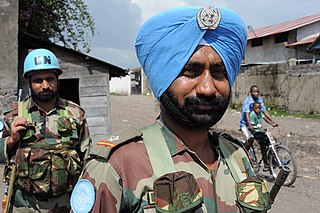
United Nations Security Council resolution 1316, adopted unanimously on 23 August 2000, after recalling resolutions 1273 (1999), 1291 (2000) and 1304 (2000) on situation in the Democratic Republic of the Congo, the Council extended the mandate of the United Nations Mission in the Democratic Republic of Congo (MONUC) until 15 October 2000.

United Nations Security Council resolution 1323, adopted unanimously on 13 October 2000, after recalling resolutions 1291 (2000), 1304 (2000) and 1316 (2000) on situation in the Democratic Republic of the Congo, the Council extended the mandate of the United Nations Mission in the Democratic Republic of Congo (MONUC) until 15 December 2000.
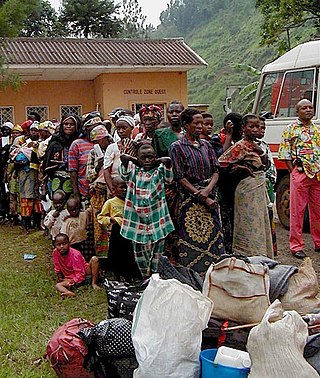
United Nations Security Council resolution 1332, adopted unanimously on 14 December 2000, after recalling resolutions 1234 (1999), 1258 (1999), 1265 (1999), 1273 (1999), 1279 (1999), 1291 (2000), 1296 (2000), 1304 (2000) and 1323 (2000) on situation in the Democratic Republic of the Congo, the Council extended the mandate of the United Nations Mission in the Democratic Republic of Congo (MONUC) until 15 June 2001.

United Nations Security Council resolution 1341, adopted unanimously on 22 February 2001, after recalling resolutions 1234 (1999), 1258 (1999), 1265 (1999), 1273 (1999), 1279 (1999), 1291 (2000), 1296 (2000), 1304 (2000), 1323 (2000) and 1332 (2000) on situation in the Democratic Republic of the Congo, the Council demanded that all parties to the conflict in the country implement disengagement plans and adopt withdrawal plans for foreign troops by 15 May 2001.
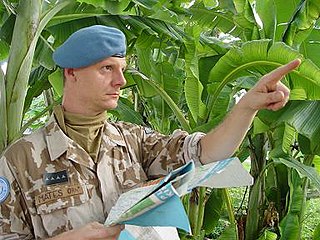
United Nations Security Council resolution 1355, adopted unanimously on 15 June 2001, after recalling resolutions 1234 (1999), 1258 (1999), 1265 (1999), 1273 (1999), 1279 (1999), 1291 (2000), 1296 (2000), 1304 (2000), 1323 (2000), 1332 (2000) and 1341 (2001) on situation in the Democratic Republic of the Congo, the Council extended the mandate of the United Nations Mission in the Democratic Republic of Congo (MONUC) until 15 June 2002 subject to review every four months.

United Nations Security Council resolution 1376, adopted unanimously on 9 November 2001, after recalling all previous resolutions on situation in the Democratic Republic of the Congo, the Council supported the third phase of the deployment of the United Nations Mission in the Democratic Republic of Congo (MONUC).

United Nations Security Council resolution 1399 was adopted unanimously on 19 March 2002. After recalling all previous resolutions on the situation in the Democratic Republic of the Congo, the Council condemned the capture of the town of Moliro and other activities by the rebel Rally for Congolese Democracy (RCD).

United Nations Security Council resolution 1445 was adopted unanimously on 4 December 2002. After recalling all previous resolutions on situation in the Democratic Republic of the Congo, the council expanded the military component of the United Nations Mission in the Democratic Republic of Congo (MONUC) to a level of 8,700 military personnel–up from 4,250–in two task forces.
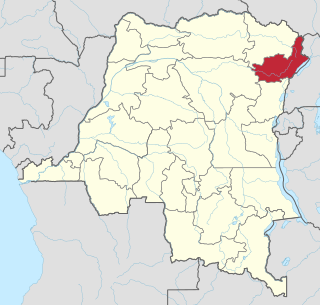
United Nations Security Council resolution 1468, adopted unanimously on 20 March 2003, after recalling previous resolutions on the situation in the Democratic Republic of the Congo, the Council welcomed an agreement on the establishment of a transitional government and requested an increased presence of the United Nations Mission in the Democratic Republic of Congo (MONUC) in the Ituri region in the east of the country amid escalating violence.
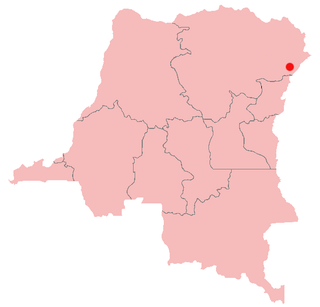
United Nations Security Council Resolution 1484, adopted unanimously on 30 May 2003, after recalling previous resolutions on the situation in the Democratic Republic of the Congo, the Council authorised Operation Artemis in Bunia, the capital of Ituri Province, amid the deteriorating security situation in the area.

United Nations Security Council resolution 1489, adopted unanimously on 26 June 2003, after recalling Resolution 1291 (2000) and other resolutions on the situation in the Democratic Republic of the Congo, particularly resolutions 1468 (2003) and 1484 (2003), the Council extended the mandate of the United Nations Mission in the Democratic Republic of Congo (MONUC) until 30 July 2003.

United Nations Security Council resolution 1493, adopted unanimously on 28 July 2003, after recalling all resolutions on the situation in the Democratic Republic of the Congo, the council extended the mandate of the United Nations Mission in the Democratic Republic of Congo (MONUC) until 30 July 2004 and raised its troop level from 8,700 to 10,800.

United Nations Security Council resolution 1501, adopted unanimously on 26 August 2003, after recalling all previous resolutions on the situation in the Democratic Republic of the Congo, particularly resolutions 1484 (2003) and 1493 (2003), authorised countries participating in Operation Artemis in Bunia to assist the United Nations Mission in the Democratic Republic of Congo (MONUC) as it was deployed around the town.

United Nations Security Council Resolution 1545, adopted unanimously on 21 May 2004, after recalling all resolutions on the situation in Burundi, particularly Resolution 1375 (2001), the council established the United Nations Operation in Burundi (ONUB) to bring about peace and national reconciliation in the country.

















